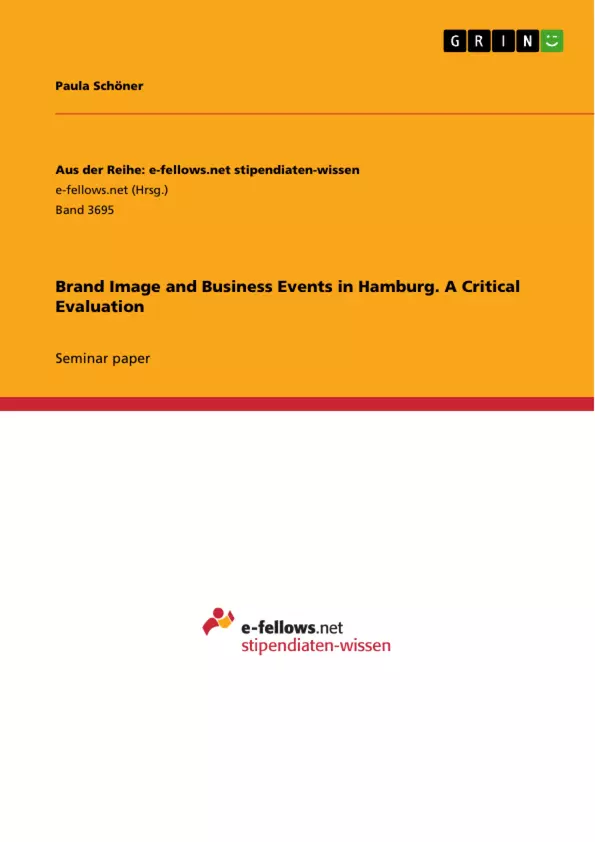The purpose of this report is to show the economic importance and recent development of the business events sector in the Free and Hanseatic city of Hamburg. The metropolis is the second largest city of Germany with a multicultural population, economic growth and huge impact on the whole country. Its exceptional flair is closely linked to the historic Hanseatic League and the city´s autonomous status to this day. The port city offers business visitors a wide range of venues, culture and leisure opportunities and will therefore be subject of this report.
First, the report provides a general overview of the business events sector. Thereafter, the city is critically analysed and evaluated regarding its popularity as a business tourism destination by means of the brand image attributes introduced by Hankinson (2005). Furthermore, it provides a prospect of how the emerging trend “sustainable tourism” is affecting the business events sector and its impact on Hamburg resulting in management implications for professionals in the industry.
Inhaltsverzeichnis (Table of Contents)
- Introduction
- Overview of the Business Events Sector and its Contribution to the Economy of Hamburg
- Hamburg's Business Events Sector
- Conference Industry
- Exhibitions/Trade Fairs
- Incentive Travel
- Corporate Hospitality
- Business Tourism Trends and Statistics
- Critical Evaluation of Hamburg regarding the Attractiveness as a Business Tourism Destination
- Evaluation of Hankinson's Model
- Physical Environment
- Economic Activity
- Business Tourism Facilities
- Accessibility
- Social Facilities
- Strength of Reputation
- People Characteristics
- Destination Size
- Impact of "Sustainable Tourism” and Management Implications for Professionals
- Sustainable Tourism
- Impact on Hamburg
- Management Implications
- Conclusion
- References
Zielsetzung und Themenschwerpunkte (Objectives and Key Themes)
This report aims to explore the economic significance and recent growth of the business events sector in Hamburg. The report analyzes Hamburg's attractiveness as a business tourism destination and examines the impact of the "sustainable tourism" trend on the industry, including its implications for professionals.
- The economic importance of the business events sector in Hamburg
- A critical evaluation of Hamburg's brand image as a business tourism destination
- The impact of the "sustainable tourism" trend on the business events sector
- Management implications for professionals in the industry
- The role of the "Hamburg Convention Bureau" in promoting the city as a business tourism location
Zusammenfassung der Kapitel (Chapter Summaries)
Chapter 1 introduces the purpose of the report and provides background information on Hamburg as a major German city with a rich history and thriving economy.
Chapter 2 delves into the business events sector, explaining its sub-sectors, growth, and contribution to the economy of Hamburg. The chapter also highlights the city's position as a popular destination for conferences, exhibitions, incentive travel, and corporate hospitality.
Chapter 3 critically evaluates Hamburg's attractiveness as a business tourism destination by applying Hankinson's model, which considers factors like physical environment, economic activity, and accessibility. The chapter analyzes the strengths and weaknesses of Hamburg in these areas.
Schlüsselwörter (Keywords)
The report focuses on the business events sector, specifically in Hamburg, encompassing key concepts such as conference industry, exhibitions, incentive travel, corporate hospitality, sustainable tourism, brand image, and destination attractiveness.
- Quote paper
- Paula Schöner (Author), 2020, Brand Image and Business Events in Hamburg. A Critical Evaluation, Munich, GRIN Verlag, https://www.grin.com/document/974181



